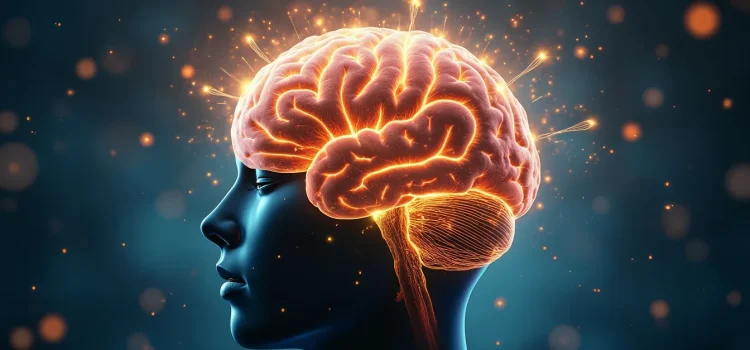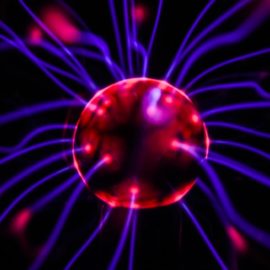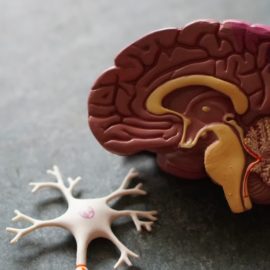

This article is an excerpt from the Shortform book guide to "Brain Energy" by Christopher M. Palmer. Shortform has the world's best summaries and analyses of books you should be reading.
Like this article? Sign up for a free trial here.
Is your mental health connected to your metabolism? Could the key to understanding mental illness lie in how your body processes energy?
Christopher M. Palmer’s brain energy theory of mental illness proposes a fascinating link between metabolic issues and mental disorders. This innovative perspective suggests that problems with energy production in our cells, particularly in the brain, may be at the root of various mental health conditions.
Keep reading to understand this intriguing theory and explore how it might reshape our understanding of mental health.
The Brain Energy Theory
In his book, Palmer explains that diagnosing mental illnesses is complicated and that there appears to be a common cause that links all mental illnesses. Then he goes on to reveal what he believes that common cause is. According to Palmer’s brain energy theory of mental illness, mental disorders are caused by metabolic issues.
Metabolism is the process that converts food into energy, keeping your cells healthy and allowing your body to grow, maintain itself, and get rid of waste. If your metabolism malfunctions, the energy in your body gets disrupted, and depending on where this malfunction occurs, you might experience a range of mental and physical symptoms. Palmer notes that your brain consumes about 20% of the energy your body produces, which makes it highly reactive to imbalances in the amount of energy it receives.
(Shortform note: Other researchers add that your brain consistently uses about 20% of your body’s energy regardless of the mental task you’re performing. This energy consumption remains relatively constant because your brain is always active, processing sensory information, emotions, and thoughts, even when you’re not consciously focusing on a task. When you concentrate on a specific mental activity, your brain makes energy trade-offs. This balancing act ensures that your brain’s total energy consumption doesn’t change dramatically, even during mentally demanding tasks.)
Palmer explains that metabolic issues occur when your mitochondria don’t function properly. Mitochondria are the parts of your cells that turn food and oxygen into energy. They also influence gene expression (how genes are turned on or off), produce and regulate neurotransmitters and hormones, and manage your immune and stress responses. Thus, your overall well-being and functioning depends on the health of your mitochondria.
Mitochondria that don’t function properly can lead to various issues: decreased cell maintenance as your brain struggles to get the energy required for upkeep, overactive or underactive cells, developmental issues, and even cell death. These consequences dramatically affect brain health and can manifest as various mental illnesses. For example, if cells in mood-regulating brain areas like the limbic system become underactive due to mitochondrial dysfunction, it could lead to symptoms of depression.
| Mitochondrial Dysfunction vs. Mitochondrial Disease Mitochondrial dysfunction isn’t the same as mitochondrial disease. The type of dysfunction Palmer talks about is technically called secondary mitochondrial dysfunction. This happens when mitochondria fail to work effectively because of another health problem, not because of a genetic issue. Many common diseases can cause this, including Alzheimer’s, diabetes, multiple sclerosis, and cancer. In contrast, mitochondrial diseases are genetic disorders you inherit from your parents that directly affect the mitochondria. These diseases, which include conditions like MELAS syndrome, Leigh syndrome, and Kearns-Sayre syndrome, are caused by mutations in the genes that provide instructions for making mitochondria. So while primary mitochondrial diseases and secondary mitochondrial dysfunction both impair energy production in your cells, they have different causes. |

———End of Preview———
Like what you just read? Read the rest of the world's best book summary and analysis of Christopher M. Palmer's "Brain Energy" at Shortform.
Here's what you'll find in our full Brain Energy summary:
- Lifestyle changes that will boost your metabolism
- The problem with current mental health theories
- How your metabolism can cause a mental illness






